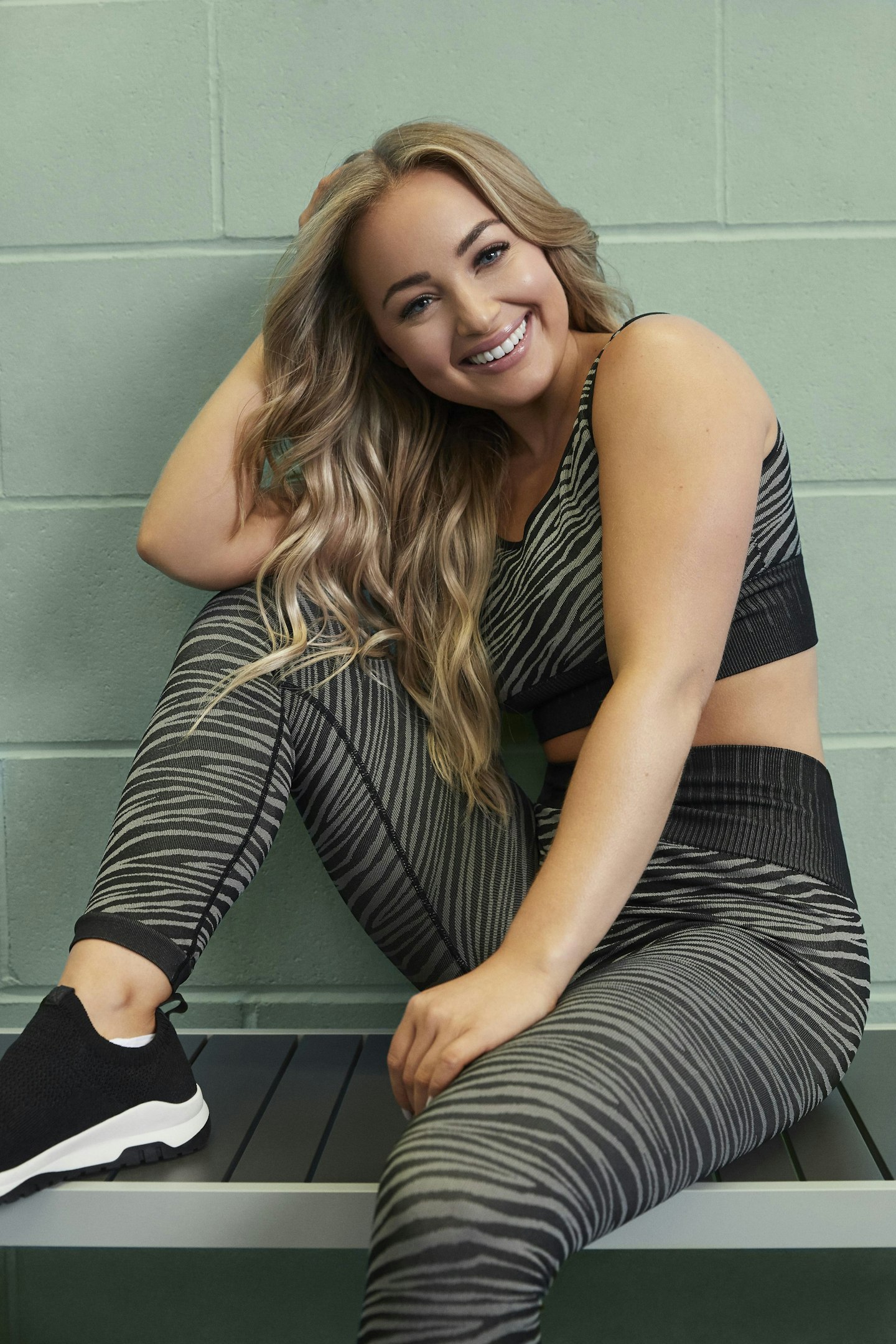Being in a relationship with a perpetrator is scary enough, not being able to get even a second’s break from them is just awful. If you pair that with that the current spike in people drinking alcohol, stress, anxiety and financial concerns – all things we know that exacerbate relationships that may already be abusive – you can see that the current lockdown is a truly terrifying situation for women and children who are living in an abusive household.
I was 16 when I found myself in a physically, emotionally and psychologically abusive relationship. Knowing what I know about being in that situation, I’m working harder than ever as an ambassador for Women’s Aid to try and help women who are now in 24-hour lockdown with their abusers.
Previously, you might’ve had times to escape, you had friends, or your day job where you were able to get out of the house and be away from a perpetrator. Even just 10 minutes alone to make a call for help. All of that has been taken away from you now, so you’re spending 24 hours a day alone with this person. The concern is there’s a lot going on that we don’t know about (due to women being unable to, or too scared to report) – women are suffering serious cases of abuse.
And it’s not just physically abusive relationships – one of the things that’s really crucial is a lot of women might be in a situation where there are signs of coercive or controlling behaviour, which they don’t recognise to be signs of abuse. My concern is this heightened stage of anxiety and stress might make people go further with those actions.
The job of Women’s Aid is not just to protect women who are aware they’re in abusive situations so they can find a safe space, but saying to people who may be in situations involving emotional, financial or coersive control , ‘These are the signs you need to be aware of.’
You might not realise you’re in an abusive situation to begin with. Often it starts very gradually. This was the case with me – a lot of the behaviours are blamed on you, like, ‘You made me behave like this’, so you feel responsible for their actions, which makes it feel much more confusing and difficult to come to the conclusion that your situation is abusive.
I was 16 when I found myself in a relationship with an older boy I'd met through friends. It very quickly went from being amazing to not – it ended with police getting involved. I had to go to court, he turned up at my school and attacked me in front of my friends. It was really traumatic, but if you’d have asked me when I was three or four months in, if I was in an abusive relationship, I’d have said, ‘No way!’ because I just wasn’t aware that some of the things he was doing were firstly wrong, and secondly, abusive.
I think people’s perception of abusive relationships is that they must be bad 24/7 and that's not always the case.
When it came, I recognised the physical abuse was wrong – I’ll never forget the first time it happened. But straight after, it was like, ‘Oh my God I can’t believe I’ve just done that, this is awful I’m so sorry’ and you’re in so much shock you think, ‘OK that’s a one off’ and then it happens again…
I think people’s perception of abusive relationships is that they must be bad 24/7 and that's not always the case. In many situations it can be peaks and troughs where you’ll have the lowest of the lows but then it’s sometimes paired with showerings of love and affection, because they may recognise what they’ve done is wrong, or you might be realising it’s wrong. Following some of the worst times within my relationship, I was then showered with presents, taken out for nice dinners. And this repetition of highs and lows is such a mindfuck. I was so young and then by the time I recognised it was really serious and it was time to get out, it was too late, I was trapped and scared of leaving him and what he would do. He’d threaten my family, which was my worst nightmare, and I just couldn’t get out.
When I tried to end it, it got very nasty. He turned up at my home and confronted my parents which I found incredibly traumatic. He would ring our home phone multiple times a day, and in to the night - we had to disconnect the home phone. The police got involved when I realised that simply saying it was over wasn't enough and I made a report and they weren’t able to really do anything except pay him a visit and tell him to leave me alone. This is why I’d say it’s crucial to log all incidents, no matter how big or small, so you have some data and evidence to fall back on should the police have to get involved.

Unfortunately all my attempts to end it didn’t work and that’s when he turned up at my school and he assaulted me in front of my friends in the middle of the high street. He was arrested, it went to court, which I found a very harrowing experience, and I got a restraining order.
One of my regrets about the situation is that if I'd known at the time about Women’s Aid, I’d probably have been in a very different situation.
There are signs you can look out for. It can start really small, with things like them constantly checking your phone, or wanting to know who you’re talking to. They might want to know where you are all the time, or not let you go out for exercise alone, wanting to be with you all the time. The control of wanting to be with you constantly, whilst at first may seem endearing can quickly spiral in to a suffocating situation where not even a phone call can be taken in private.
The important thing to remember is help is there – you’ve just got to reach out for it. Women’s Aid has an online chat service which runs from 10-12, Monday to Friday – there are lots of other ways to contact them too. There’s the National Domestic Abuse hotline (0808 2000 247); Refuge charity has online services and a helpline. And also, should you be in immediate danger, don't be afraid to ring the police.
If those options aren’t available to you right now, then at least try to reach out to your support network. Perhaps develop a code word with a friend or family member, that should things get really bad you’re able to call for help in a discreet way. The services are there to support you through what can be some of the most difficult experiences of your life. Women’s Aid is a great place to start because, sometimes it’s just about getting the right advice, that gives you the confidence to think, ‘I can do this, I can leave.'
And it’s not just victims that sometimes need support. If you’re a friend of family member of someone who you believe is a victim of domestic abuse, I’d suggest you just try to reach out and check in on them. Be as supportive as you can, and offer suggestions of where they might be able to get help should they need it. Sometimes it’s really hard to open up to people closest to you about abuse, there’s so much shame involved. But maybe suggest a code word, they can call or ring you with – and encourage them to have their phone on them at all times so they can call the police if they need to.
This situation is devastating, in that I worry that so many cases are being missed and more lives are going to be lost. The £2 million budget the government has offered to help is unfortunately just not enough to support the vital services needed to keep women and children safe during this time. Whilst a nice gesture, the government budget has been a drop in the ocean of what’s needed to really protect victims of domestic abuse and it breaks my heart that we aren’t even seeing the tip of the iceberg of cases – so many are going unreported. I appreciate Covid-19 is a serious risk to life, but lives are lost to domestic violence every day, too. Every country with this pandemic has seen a spike in cases of domestic abuse. It’s no surprise that people are going to be seriously affected or even killed if we don’t put in serious measures to help support them.
This is an incredibly difficult and stressful time for everyone, but no matter how bad things get financially, emotionally, or whatever, it is NEVER an excuse to abuse someone.
If you need help you can contact Women’s Aid, which also has an online chat service, which runs from 10-12, Monday to Friday. You can call the National Domestic Abuse hotline on 0808 2000 247. Refuge charity has online services and a helpline.
READ MORE: There Has Been A 25% Increase In Domestic Abuse Calls Since The Lockdown
READ MORE: From Childbirth To The Economy, Women's Rights Are Endangered By The Coronavirus Crisis
